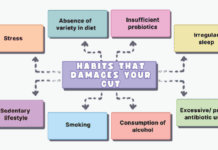PUTRAJAYA: Mundipharma Pharmaceuticals together with Universiti Sains Islam Malaysia (USIM) have collaborated to educate kindergartners from Tadika Islam MAIWP Sulaimaniyyah, Precinct 18, Putrajaya on the importance of hand hygiene through their Healthy Hands project. In this Healthy Hands research, Mundipharma and USIM wanted to find out how hand hygiene habits can influence the rate of absenteeism among the young children.
Senior Medical Lecturer and Clinical Microbiologist Dr Nurul Azmawati Mohamed, the Principal investigator and her team of five co-investigators are investigating the rate of absenteeism and its correlation to healthy hand hygiene. Nurul Azmawati has been studying infection control in the community for the past two years.
“We expect to see an increase in awareness when it comes to hand hygiene, a decrease in the rate for absenteeism due to infections that are common among pre-school children such as HFMD, food poisoning, cold and flu,” explained Nurul Azmawati.
Mundipharma is no stranger when it comes to funding projects by scientists and those in the medical field; however this would be one of the first collaborations of this sort to happen in Southeast Asia.
“Both Mundipharma and USIM have found common objectives in conducting the study as it is also in line with the company’s commitment to serve public health,” said Dr Ravindra Ramesh Deore, an Associate Medical Affairs Director from Mundipharma Pharmaceuticals Sdn. Bhd.
“Once hand hygiene is taught at a young age, it’s easy for it to become a habit. That’s why we chose to conduct study among children because at the same time we can instil these habits,” said another research team member, Dr Tengku Zetty Maztura, Medical Lecturer and Infection Control Specialist from the Faculty of Medicine & Health Sciences, UPM Serdang.
Almost 300 students ranging from ages five to six years old participated in the day’s Healthy Hands Project intervention. The day started with the children watching a video that teaches them the eleven essential steps of hand washing.
To show the effectiveness of hand washing technique, the children were first asked to rub their hands with Glo Germ™ tool, a gel which contains simulated germs that illuminate under UV light prior to looking at their hands under the UV light.
The children were then asked to look at their hands using the Glo Germ™ tool to examine germs on their hands. Next, the children were guided to wash their hands with the correct steps with water and BETADINE® Antiseptic Skin Cleanser and their hands were checked under the UV light again.
BETADINE® Antiseptic Skin Cleanser contains 7.5% povidone-iodine; a scientifically-proven antiseptic that kills bacteria, fungi and viruses that cause infections, and offers additional germ-killing action against viruses compared to other antibacterial handwashes.
The study involves three phases. The first phase, conducted in early September, with a pre-test in which the kindergartners’ knowledge on hand hygiene was gauged.
“What happened today was the start of the second phase – the intervention,”said Nurul Azmawati.
After two months of data collection, the study will move on to the third phase which is a post-test. The kindergartners will be asked same questions as they did in the first phase.
A mobile device application specially developed by Mundipharma for this research. The app will identify which hand washing steps that children often missed out and enable the reinforcement of hand hygiene education. Data from the application will be collected and tabulated for the researchers to use and correct specific teaching methods or areas.














